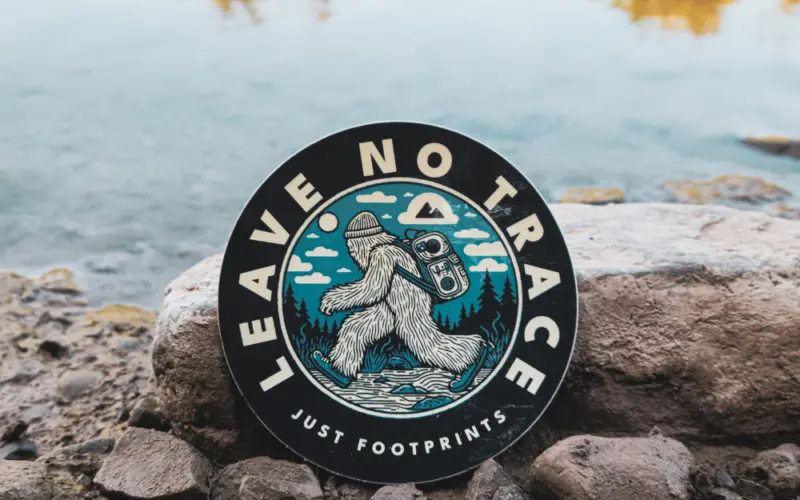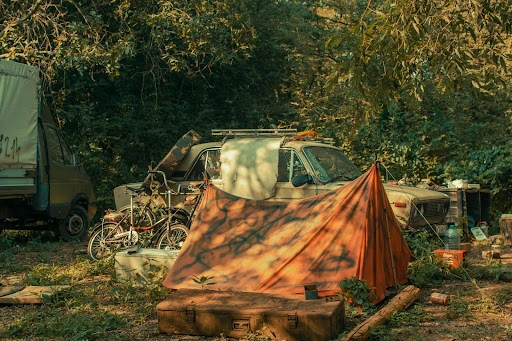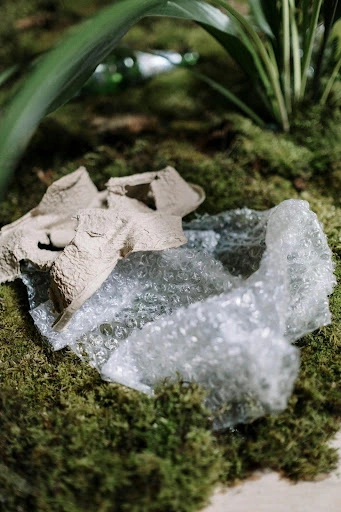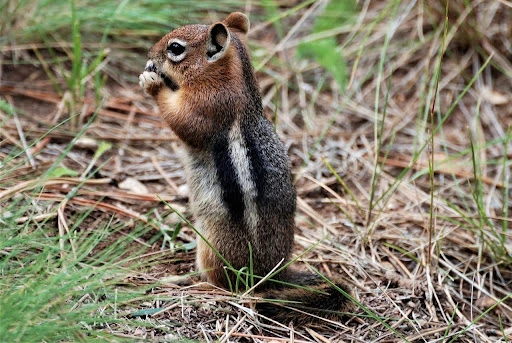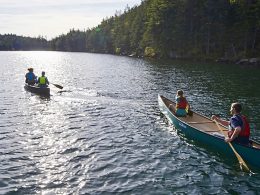Have you ever encountered a pristine campsite, only to find it littered with trash and remnants of human presence? I come across it often in my travels and it’s disheartening, to say the least. The growing concern about environmental degradation in our beautiful natural camping areas is impossible to ignore. Each year, more and more of our wilderness spots bear the scars of careless campers.
However, with a little bit of accountability and some common sense education, we can work towards cleaning up the place a little. Here are 5 ways you can make your life a little easier when it comes to cleaning up your campsite.
Table of Contents
Leave No Trash Behind
The first step to being an eco-conscious camper is straightforward but probably the easiest to follow—leave no trash behind. It’s not just about packing out what you packed in; it’s about leaving the campsite cleaner than you found it.
This simple act goes a long way for the next group that wants to enjoy the site. I know it can be a pain in the butt to clean someone else’s mess, but you will be helping the local ecosystem out. I always bring extra bags specifically for trash. If the garbage is really bad then putting on some heavy-duty work gloves might be the way to go.
For your camping trip, think ahead and plan meals that generate minimal waste. Use reusable containers instead of single-use plastics. Put everything you want to get rid of in the trash bag and drop it off at the nearest dump.
Use Biodegradable Cleaning Products
Cleaning up after a day in the wilderness shouldn’t come at the expense of the environment. Conventional cleaning products often contain chemicals that can be harmful to ecosystems. When used improperly, these chemicals can seep into the soil and water, causing long-term damage.
Instead, use biodegradable and naturally sourced cleaning products. By this I mean grab a little vinegar and water to help clean greasy dishes, or use salt as an abrasive for cleaning cast iron. If you need to use dish soap then get some that are biodegradable.
Realistically, a small drop of conventional liquid dish detergent in your cleaning water won’t harm the environment. So if you must bring your detergent from home, be it. But don’t overdo it.
The idea is not to go out and clean all of your stuff with Clorox wipes and then dump it in the forest to break down and leave their strong detergents to leak into the ground.
Respect the Natural Resources
Our natural resources are meant to be shared by everyone. Over-harvesting plants or cutting live trees can disrupt local ecosystems and harm wildlife. It also tends to ruin the scenery that a lot of us travel to these spots for.
This means that sustainable foraging practices are essential for preserving the delicate balance of nature. Here are some guidelines I follow:
- Avoid picking plants unless you are certain they are abundant and not endangered.
- Take only what you need and never uproot entire swathes of plants. If you’re unsure, err on the side of caution and leave it be
- Use fallen branches or dead standing for firewood, avoid cutting down live trees.
- Don’t clear your immediate area of dead wood, animals will use it for homes and if it’s all gone then animals won’t live there
Another good practice is to leave a little firewood for the next adventurers who happen across the campsite. Leaving extra supplies is a common practice in cabins along trails or in remote locations.
Proper Bio Waste Disposal
Human waste can pose a significant threat to the environment if not managed properly. If it starts to get into waterways it can contaminate drinking water for both wildlife and humans alike. Responsible waste disposal is somewhat of a taboo subject but needs to be talked about more.
For example, one method to take a dump is to dig a cat hole—an 8-inch deep hole, at least 200 feet away from water sources, trails, and campsites. After use, cover it thoroughly with dirt and natural materials.
If you can’t go in a hole, consider using portable toilets, which can be emptied at designated facilities. Otherwise, you’re stuck with a bag that you’ll have to carry out with you because you’re not going to leave it at your site, right?
Responsible Cooking Practices
Cooking in the great outdoors is one of my favorite things to do. However, it’s essential to manage cooking waste responsibly to prevent attracting wildlife and polluting the environment. One time I left some pork chops on the top of my truck thinking that it was cold enough to keep them until the next day. Well, when I went to get them the next day they were gone… including the tray.
As convenient as it may sound, avoid dumping fats and grease directly onto the ground. Instead, pour them into a can or other container and haul them out with you. The same applies for leftovers, don’t toss them into the woods as it’ll only attract wildlife and potentially cause a problem. If not with you, then maybe the next campers.
In my experience and opinion, burning small amounts of organic waste is appropriate, but ensure that you’re allowed to have a fire where you are and that everything will be incinerated. And don’t burn eggshells, they smell really bad when they’re in a fire. You’ll thank me later.
Final Thoughts
Since a campsite hosts several groups of people during the camping season, it’s safe to say that not everyone is going to follow these principles. You will come across either someone who has trashed a site or is currently trashing a site. I am no stranger to telling campers to take out their trash when leaving and I hope you don’t stay silent on it either.
As I said earlier, the majority of us are decent human beings who pick up after themselves but with a little education and nudging, everyone can get on board and keep the woods clean.

